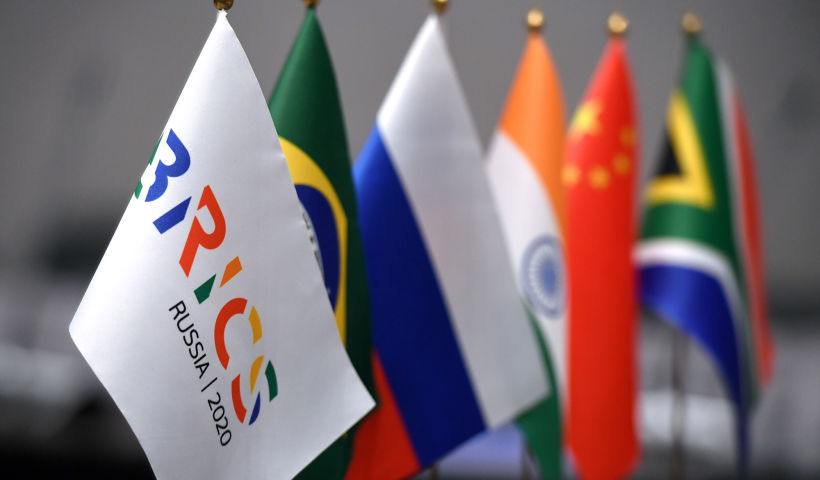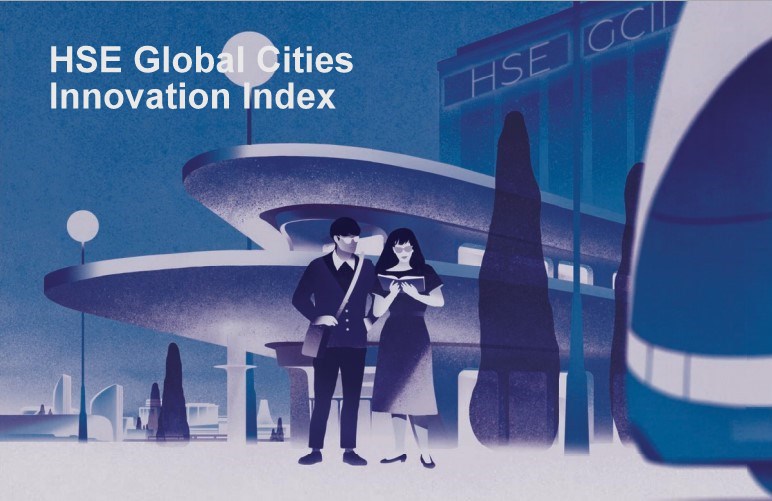
Building Bridges Between Knowledge and Society and Improving Policy Effectiveness Is the Task of Think Tanks
On December 4, the International Advisory Board of the Institute for Statistical Studies and Economics of Knowledge of HSE University met for its annual meeting. It was an anniversary event, as was the X Foresight Conference that preceded it. Largely thanks to the online format, the assembled board was the most representative of the field in its history. Experts from 20 international partner centres assessed ISSEK’s activities over the past year and proposed a wide range of topics for new research.

HSE Becomes Analytical Partner of the Global Impact Conference
How can we achieve balanced growth of the global economy? What is a human-centred approach for economic growth? How can we measure the contribution of corporations to sustainable development? On December 1- 2, visionaries of sustainable development — more than 50 international experts from 23 countries, including representatives of government organizations and businesses, non-profit organizations, and civil society activists — will answer these questions at the Global Impact Conference.

Leaders of Russia and the People's Republic of China Discuss the BRICS Energy Research Cooperation Platform Created with the Participation of HSE University
At the twelfth BRICS summit held on November 17, Russian President Vladimir Putin and President of the People's Republic of China Xi Jinping spoke via videoconference about the importance of the BRICS Energy Research Cooperation Platform. Researchers from HSE Institute for Statistical Studies and Economics of Knowledge and the Institute for Economics and Regulation of Natural Monopolies are involved in the work of the Platform.

From Science Fiction to Designing the Future: Annual Foresight Conference Commences at HSE University
This week, researchers from all over the world have gathered online for the 10th annual International Academic Conference ‘Foresight and STI Policy’ at HSE University. One of the cross-cutting themes of the anniversary forum, which will be held from November 9 to 13, is lessons learned from the pandemic and the crisis’s effects in future scenarios.

Post-COVID-19 Future Scenarios to Be Discussed at Anniversary HSE Foresight Conference
From November 9 – 13, the HSE Institute for Statistical Studies and Economics of Knowledge is organizing its Tenth International Academic Conference ‘Foresight and STI Policy’. The conference has been acknowledged by OECD as one of the world’s most important forums of foresight researchers. It will the tenth time that the conference brings together Russian and international experts from the leading think tanks, research centres and universities, national ministries and government bodies, development institutes and high-tech companies from over 20 countries.

From Future to Present: How the Coronavirus Crisis Opens up New Opportunities for Domestic Business
The pandemic has put global development on hold and this is a chance for Russia to occupy market niches that were previously closed. But innovation should become as essential as air and, without information technology, new niches will still not be open. Alexander Chulok, Director of the HSE UniversityCentre for Science and Technology Foresight, spoke about this in a special report at the global conference‘Accelerate Global 2020’.

HSE University Presents First Global Cities Innovation Index
According to HSE University’s Global Cities Innovation Index, New York and London are the world’s most attractive megacities to innovators implementing creative and technological initiatives. Moscow ranked among the rating’s top ten cities, leading in the areas of ‘Innovation Infrastructure’ and ‘Digital Infrastructure and Services’. HSE researchers presented the index at this year’s Open Innovations Forum.
HSE University to Present Its New HSE Global Cities Innovation Index at the Open Innovations Forum 2020
On October 19, the first public presentation and discussion of the HSE Global Cities Innovation Index will take place at this year’s international Open Innovations Forum. The index, developed by HSE University researchers, is the first of its kind.

Jonathan Calof: 'I Hope That I Will Be Able to Travel to Moscow to Be with My HSE Colleagues and Friends Soon'
Jonathan Calof has been cooperating with HSE since 2009. In an interview with HSE News Service he talks about how his involvement with HSE began, what projects he has been part of, and how he has organised his online work during the recent lockdown.

Foresight and STI Governance Journal Enters Scopus Q1
The journal Foresight and STI Governance published by HSE University has joined the ‘elite’ of Scopus, the biggest international database for research citations. In the latest ranking, this journal appears in Q1 for the following areas: Economics, Econometrics and Finance, and Decision Sciences in the ‘miscellaneous’ category. Foresight and STI Governance has become the first HSE University journal in social sciences to achieve this level of success.

